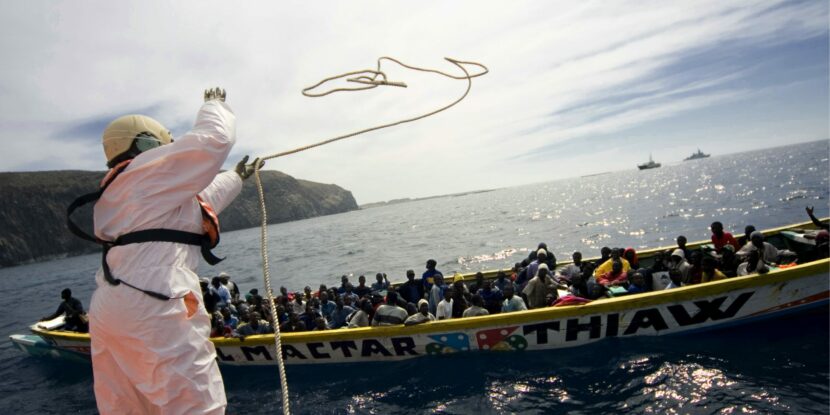Illegal migrant arrivals from Africa surged to unprecedented levels in Spain during the first half of August. Data from the Spanish Interior Ministry shows a sharp increase of 126 percent in the Canary Islands, off the African coast, and a 143 percent rise in Ceuta, a Spanish exclave on the coast of North Africa.
In July, Fernando Clavijo—the Canary Islands’ regional leader from a coalition of center-right parties—appealed to Spanish Prime Minister Pedro Sánchez and the European Union (EU) for urgent intervention regarding migration. From January to mid-August, the Canary Islands recorded 22,304 irregular arrivals, up 126.1 percent from the same period the previous year.
While the numbers are small compared to the millions of migrants penetrating the U.S. southern border, they are transformative for the islands’ relatively small population, which includes thousands of British and German retirees. The majority of the illegals originate from Mauritania and the Sahel region, spanning the southern Sahara from the Atlantic Ocean to the Red Sea. Violence in the region, where American influence is waning under the Biden-Harris government, is spurring large movements of migrants.
From January to August, 31,155 illegal migrants arrived in Spain, representing a 66.2 percent increase compared to the same period last year. Most of these migrants, approximately 29,512 individuals, arrived by sea on small boats. Spain remains a critical entry point to the European Union (EU) for migrants, particularly those from West African countries navigating the dangerous Atlantic route to the Canary Islands and those seeking to break into the exclaves of Ceuta and Melilla through Morocco.
The growing migrant numbers have prompted calls for action from the leader of the opposition People’s Party, Alberto Núñez Feijóo, who requested the government declare a “migratory emergency.” The populist VOX party also frequently criticizes Prime Minister Pedro Sánchez’s far-left government on border security.




















